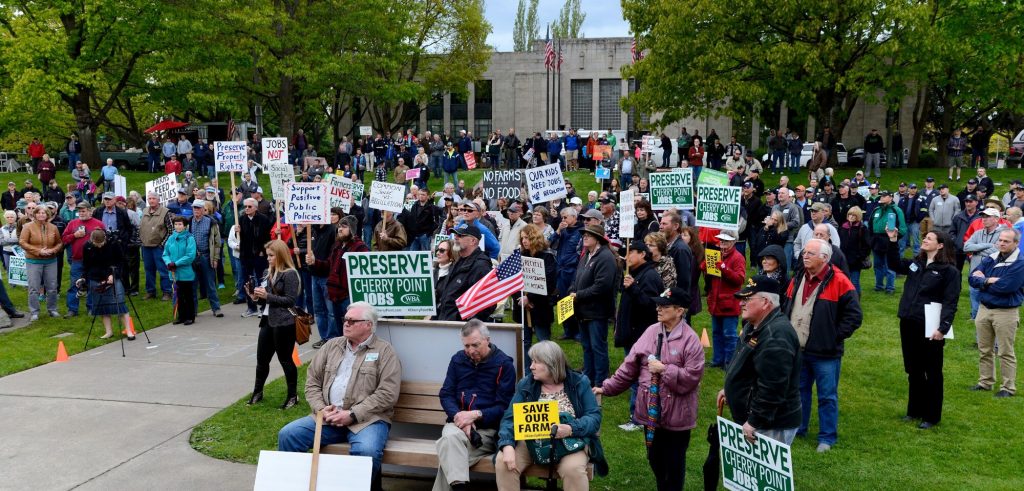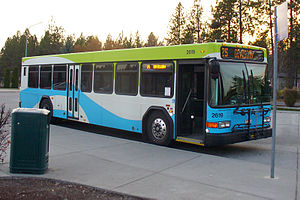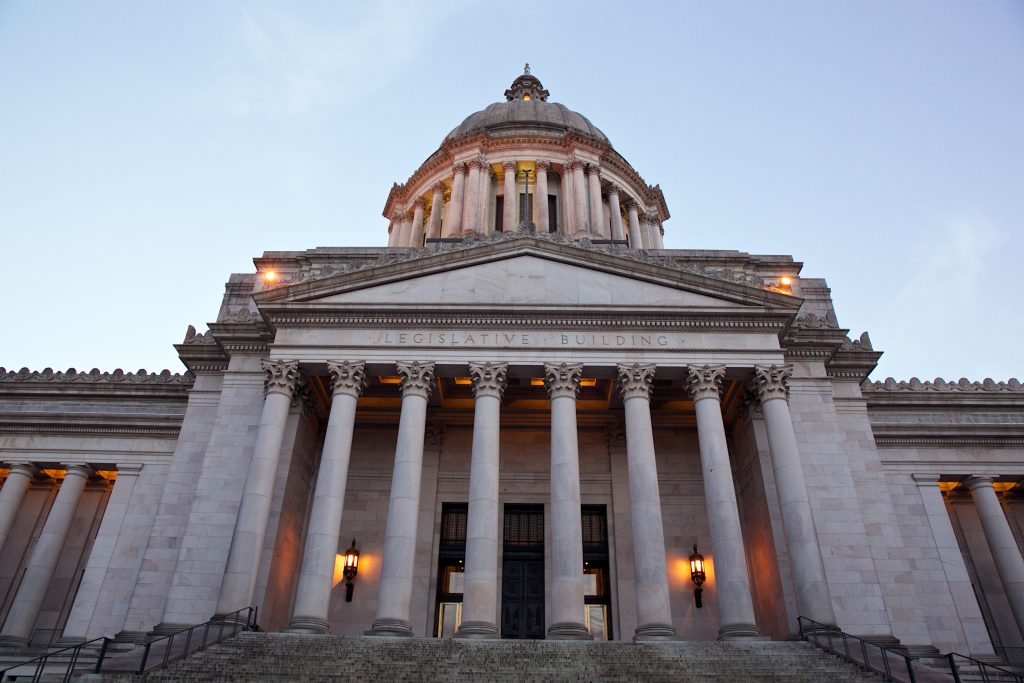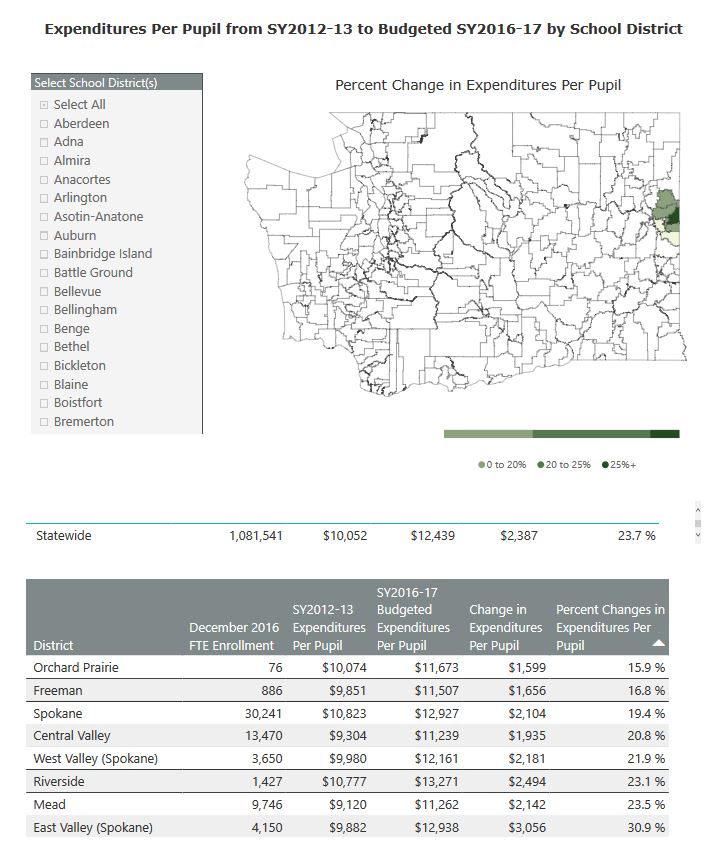The following newsletter was sent to subscribers to Sen. Padden’s Report From Olympia, May 25, 2017. To subscribe to Sen. Padden’s newsletters, click here.
Dear friends and neighbors,
This week our first special session ended and a new one began – a distinction that probably means more to us in the Legislature than it does to anyone outside of Olympia. What it means is that a month has passed since we ended our regular session, and we still don’t have an agreement on a state budget. Our colleagues on the other side of the aisle remain stuck on the idea of a massive $3 billion tax increase – even though they don’t have the votes to pass it in the House, which they control. Meanwhile, the Senate has voted for a budget that meets the state’s needs without raising taxes. We have five weeks to pass a final budget and avoid a state-government shutdown, and we must remain optimistic that agreement will be reached.
Meanwhile, a new interactive school-funding map makes it easy to see how our own school districts are faring as we debate ways to reform our school-funding system. And we are seeing agitation here and elsewhere for a “Hirst fix” to restore the right of rural property owners to drill domestic wells. This week’s newsletter will tell you more.
Sen. Mike Padden
What double overtime really means
For those keeping track of such things, we are now on our second special session. The constitution allows us to remain in session for up to 30 days if we fail to complete our work in the allotted time. Our 105-day regular session ended April 23, and our first 30 days of overtime ended May 23. The governor called us back into session immediately. This gives us another 30 days to reach agreement.
As Senate Majority Leader Mark Schoesler, R-Ritzville, observed, House Democrats “now have more time to come up with a properly funded plan.” Both parties are fully engaged in budget negotiations, though the House’s failure to stake out a position on taxes — and vote on them — adds a troubling complication.
‘Hirst comes first’

Problems created by the Hirst decision were a major issue at last week’s “Wake Up Whatcom County” rally. (Photo: Common Threads NW)
While education is a top concern for the Legislature as a whole, a Supreme Court decision last fall has made water rights the biggest issue for thousands of rural property owners across the state. The Hirst decision overturned well-established water law that made it possible for property owners to drill small wells without obtaining costly and difficult water-rights permits. Unless this decision is reversed by the Legislature, rural property values will plummet and city dwellers will be forced to pick up the slack in the form of higher taxes. Two events last week demonstrated the ‘Hirst heist’ is a problem the Legislature cannot ignore.
An informational meeting on the Hirst decision last Friday drew a standing-room-only crowd of 250 to the Spokane County Water Resource Center. And in Bellingham, a ‘Wake Up Whatcom County’ rally drew 300. In Whatcom County, the assessor estimates that property values could decline $186 million if the Legislature takes no action.
I have cosponsored a Senate bill that would restore traditional water law, but SB 5239 has run into opposition in the House from environmental groups, tribal interests and others who wish to restrict property rights. As awareness grows, so does public indignation – and it has only stiffened the Senate’s determination to pass a fix. The governor has called Hirst a distraction from education, but around the Senate many of us are saying “Hirst comes first.” We can expect this to be a major issue in the Legislature before this year’s session comes to a close.
School funding on the rise
Contrary to what you may have heard, school funding has dramatically increased since the Supreme Court ruled in 2012 that the state is not adequately funding basic education. Without raising taxes, the Legislature has managed to increase funding for public schools by $4.6 billion.
An interactive map here shows how local school districts have fared since 2012. While many would like you to believe the Legislature has done nothing, this year’s debate is really about how we finish the job. The figures below tell the story:
This year’s proposal for K-12 from the Senate, we should point out, revises the state’s definition of basic education and provides a higher fixed allocation for every student in the state. Yet it avoids a general increase in taxation. We do this by ending a tax break for the state’s wealthiest school districts. For years residents of Seattle, Mercer Island and other wealthy districts have paid lower property tax rates than the rest of the state. We would require them to pay the same rate as everyone else. Most people in the state, some 83 percent, would pay lower property taxes than they do at present. And everyone would pay less under the Senate plan than they do under the House plan, which would allow local school levies to continue as they are today.
Good news about fire insurance
During a fire inspection at our district office last week, in the current Spokane Valley City Hall building, we learned a piece of good news for everyone who lives in the incorporated areas of the 4th Legislative District. The cities of Spokane Valley, Millwood and Liberty Lake have achieved a Protection Class 2 rating from the Washington Surveying and Rating Bureau, effective April 1 of this year.
The new rating can mean lower fire insurance premiums, depending on your carrier. The ratings reflect the ability of local firefighting agencies to respond quickly and effectively, and typically remain in place for 10 years. The cities formerly were rated Class 3 – unincorporated areas retain their Class 3 status. The improved rating is a reflection of the good job our local fire departments are doing, and we are seeing the benefit in a tangible way.
New bus route for Valley
 The Spokane Transit Authority has kicked off service on a new Valley bus route, serving the fast-growing area east of Sullivan Road, and along Indiana Avenue between Sullivan and Flora roads. I was among those who attended STA’s ribbon-cutting ceremony this week at the Valley Transit Center for the new Route 95. This route, linking homes, shopping centers and medical facilities, has been a high priority for community leaders, and the fact it has finally been launched is a recognition of the Valley’s vitality. (Photo: Wikimedia Commons)
The Spokane Transit Authority has kicked off service on a new Valley bus route, serving the fast-growing area east of Sullivan Road, and along Indiana Avenue between Sullivan and Flora roads. I was among those who attended STA’s ribbon-cutting ceremony this week at the Valley Transit Center for the new Route 95. This route, linking homes, shopping centers and medical facilities, has been a high priority for community leaders, and the fact it has finally been launched is a recognition of the Valley’s vitality. (Photo: Wikimedia Commons)
Contact us
If you have a question or concern about state government, please do not hesitate to contact our office. We are here to serve you!
Phone: (509) 921-2460
Street address: 11707 East Sprague Ave., Suite 305, Spokane Valley, WA 99206













